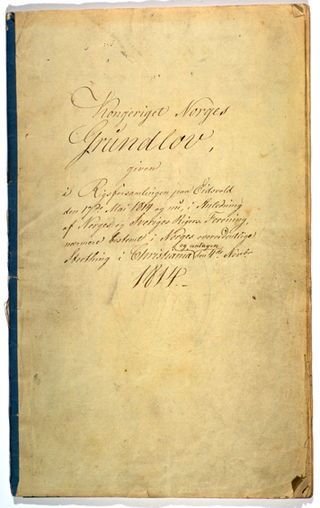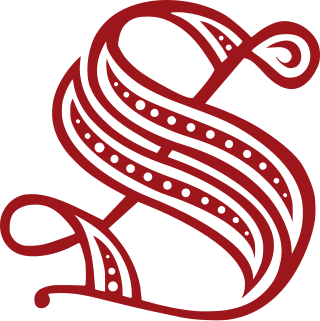Related Research Articles

The Czech Republic is a unitary parliamentary republic, in which the president is the head of state and the prime minister is the head of government. Executive power is exercised by the Government of the Czech Republic, which reports to the Chamber of Deputies. The legislature is exercised by the Parliament. The Czech Parliament is bicameral: the upper house of the Parliament is the Senate, and the lower house is the Chamber of Deputies. The Senate consists of 81 members who are elected for six years. The Chamber of Deputies consists of 200 members who are elected for four years. The judiciary system is topped by the trio of the Constitutional Court, Supreme Court and Supreme Administrative Court.

Impeachment is a process by which a legislative body or other legally constituted tribunal initiates charges against a public official for misconduct. It may be understood as a unique process involving both political and legal elements.

Article One of the Constitution of the United States establishes the legislative branch of the federal government, the United States Congress. Under Article One, Congress is a bicameral legislature consisting of the House of Representatives and the Senate. Article One grants Congress various enumerated powers and the ability to pass laws "necessary and proper" to carry out those powers. Article One also establishes the procedures for passing a bill and places various limits on the powers of Congress and the states from abusing their powers.
The politics of Norway take place in the framework of a parliamentary, representative democratic constitutional monarchy. Executive power is exercised by the Council of State, the cabinet, led by the prime minister of Norway. Legislative power is vested in both the government and the legislature, the Storting, elected within a multi-party system. The judiciary is independent of the executive branch and the legislature.

The Constitution of Norway was adopted on 16 May and signed on 17 May 1814 by the Norwegian Constituent Assembly at Eidsvoll. The latter date is the National Day of Norway; it marks the establishment of the constitution.

The president of India is the head of state of the Republic of India. The president is the nominal head of the executive, the first citizen of the country, as well as the supreme commander of the Indian Armed Forces. Droupadi Murmu is the 15th and current president, having taken office from 25 July 2022.

The Storting is the supreme legislature of Norway, established in 1814 by the Constitution of Norway. It is located in Oslo. The unicameral parliament has 169 members and is elected every four years based on party-list proportional representation in nineteen multi-seat constituencies. A member of the Storting is known in Norwegian as a stortingsrepresentant, literally "Storting representative".
In political science, a constitutional crisis is a problem or conflict in the function of a government that the political constitution or other fundamental governing law is perceived to be unable to resolve. There are several variations to this definition. For instance, one describes it as the crisis that arises out of the failure, or at least a strong risk of failure, of a constitution to perform its central functions. The crisis may arise from a variety of possible causes. For example, a government may want to pass a law contrary to its constitution; the constitution may fail to provide a clear answer for a specific situation; the constitution may be clear but it may be politically infeasible to follow it; the government institutions themselves may falter or fail to live up to what the law prescribes them to be; or officials in the government may justify avoiding dealing with a serious problem based on narrow interpretations of the law. Specific examples include the South African Coloured vote constitutional crisis in the 1950s, the secession of the southern U.S. states in 1860 and 1861, the dismissal of the Australian federal government in 1975 and the 2007 Ukrainian crisis. While the United Kingdom of Great Britain and Northern Ireland does not have a codified constitution, it is deemed to have an uncodified one, and issues and crises in the UK and its constituent countries are described as constitutional crises.

The president of Romania is the head of state of Romania. They are directly elected by a two-round system, and, following a modification to the Romanian Constitution in 2003, serve for five years. An individual may serve two terms that have to be consecutive. During their term in office, the president may not be a formal member of a political party. The president of Romania is the supreme commander of the Romanian Armed Forces.

The Supreme Court of Norway is the highest court in the Norwegian judiciary. It was established in 1815 on the basis of section 88 in the Constitution of the Kingdom of Norway, which prescribed an independent judiciary. It is located in the capital Oslo. In addition to serving as the court of final appeal for civil and criminal cases, it can also rule whether the Cabinet has acted in accordance with Norwegian law and whether the Parliament has passed legislation consistent with the Constitution.

The Federal Constitution of Austria is the body of all constitutional law of the Republic of Austria on the federal level. It is split up over many different acts. Its centerpiece is the Federal Constitutional Law (Bundes-Verfassungsgesetz) (B-VG), which includes the most important federal constitutional provisions.

The Italian Parliament is the national parliament of the Italian Republic. It is the representative body of Italian citizens and is the successor to the Parliament of the Kingdom of Sardinia (1848–1861), the Parliament of the Kingdom of Italy (1861–1943), the transitional National Council (1945–1946) and the Constituent Assembly (1946–1948). It is a bicameral legislature with 600 elected members and a small number of unelected members. The Italian Parliament is composed of the Chamber of Deputies, as well as the Senate of the Republic.

Under the Constitution of Finland, everyone is entitled to have their case heard by a court or an authority appropriately and without undue delay. This is achieved through the judicial system of Finland.

The Constitutional Court of Korea is one of the highest courts—along with the Supreme Court—in South Korea's judiciary that exercises constitutional review, seated in Jongno, Seoul. The South Korean Constitution vests judicial power in courts composed of judges, which establishes the ordinary-court system, but also separates an independent constitutional court and grants it exclusive jurisdiction over matters of constitutionality. Specifically, Chapter VI Article 111(1) of the South Korean Constitution specifies the following cases to be exclusively reviewed by the Constitutional Court:
- The constitutionality of a law upon the request of the courts;
- Impeachment;
- Dissolution of a political party;
- Competence disputes between State agencies, between State agencies and local governments, and between local governments; and
- Constitutional complaints as prescribed by [the Constitutional Court] Act.
In Greece, the Special Highest Court, is provided for in the article 100 of the Constitution of Greece. It is not a permanent court and it sits only when a case belonging to its special competence arises. It is regarded as the supreme "constitutional" and "electoral" court of Greece. Its decisions are irrevocable and binding for all the courts, including the Supreme Courts. However, the Special Highest Court does not have an hierarchical relation with the three Supreme Courts. It is not considered higher than these courts and it does not belong to any branch of the Greek justice system.
Impeachment in the Philippines is an expressed power of the Congress of the Philippines to formally charge a serving government official with an impeachable offense. After being impeached by the House of Representatives, the official is then tried in the Senate. If convicted, the official is either removed from office or censured.

The Supreme Court is the highest court in the Kingdom of Spain. The court has original jurisdiction over cases against high-ranking officials of the Kingdom and over cases regarding the legalization of political parties. It also has ultimate appellate jurisdiction over all cases. The Court has the power of judicial review, except for the judicial revision on constitutional matters, reserved to the Constitutional Court.
An impeachment trial is a trial that functions as a component of an impeachment. Several governments utilize impeachment trials as a part of their processes for impeachment, but differ as to when in the impeachment process trials take place and how such trials are held.

Jon Gundersen Hol was a Norwegian engineer and activist. He is known for his pamphlet Rifleringen, published in February 1884, that resulted in his arrest for lèse majesté. In the pamphlet, he called for soldiers and civilians to arm themselves and encircle the Parliament of Norway Building, creating a "Ring of Rifles", should the need arise. The political situation in Norway at the time was unstable, with an ongoing impeachment case against the conservative government started by political liberals. King Oscar II of Sweden and Norway supported the conservative politicians, and Hol believed that a political and military counter-offensive was planned, hence the need for guarding the Parliament. The tensions between liberals and conservatives drew Hol into politics in the first place in 1880. Before this, he was an engineer by occupation and a writer, albeit apolitical. He increased his writing after 1880, and also involved himself in non-socialist trade unions, including the unsuccessful attempt of establishing a national trade union center in Kristiania.

The Supreme Court of the Republic of Albania is the highest court of Albania and is the final court of appeals in the country's judicial system. It is composed of seventeen judges: the Chief Justice and sixteen Members.
References
- ↑ "The Constitution of the Kingdom of Norway - Lovdata". lovdata.no. Retrieved 2023-08-11.
- ↑ "The control of the legislative and the executive power by Norwegian courts". www.domstol.no. Retrieved 2023-08-11.
- 1 2 3 Andenæs, Johs.; Fliflet, Arne (2006). Statsforfatningen i Norge (in Norwegian) (10th ed.). Oslo: Universitetsforlaget. ISBN 82-15-00989-1. Archived from the original on 2007-10-06.
- ↑ Storting (2004-06-18). "Dokument nr. 12:1 (2003–2004)" (PDF) (in Norwegian). Archived from the original (PDF) on 2008-05-29. Retrieved 2008-10-12.
